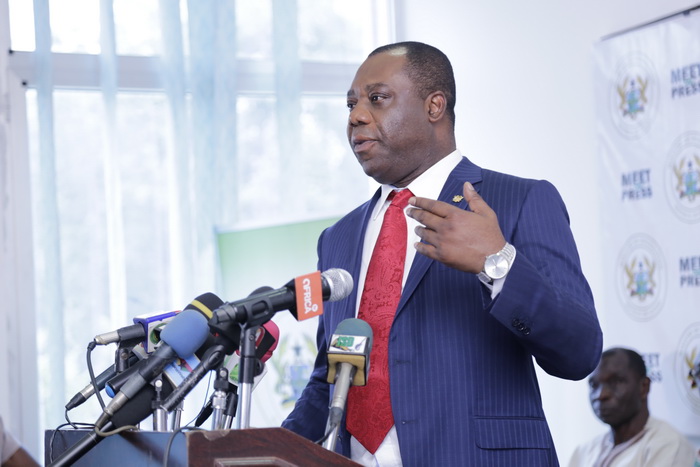
Education Ministry negotiates with WAEC to shift WASSCE from February to June
The Ministry of Education is in negotiations with the West African Examination Council (WAEC) to shift the West African Senior School Certificate Examinations (WASSCE) from February to June every year with effect from 2018.
According to the ministry, this will allow students of senior high schools (SHSs) adequate time to exhaust the required nine-month syllabus.
Besides, the measure is also expected to allow students to enjoy enough teaching and learning time before sitting the WASSCE.
The Minister of Education, Dr Matthew Opoku Prempeh, who disclosed this in Accra last Wednesday, said: “This year, we have agreed with the West African Examinations Council that we don’t want to start the exams in February; we want it to go back to when we all did our A-levels and O-levels which was May/June or Nov/ Dec when we also did re-sit.
“So this year, we hope WAEC will start the exams in May and start with practicals and orals and the effective exams in June so that we would have covered the nine terms before the students write the exams,” he stated.
Meet-the-press
Dr Prempeh was addressing a meet-the-press series to update the press on the progress made so far in the Free SHS policy by the government.
In 2007, the New Patriotic Party (NPP) administration under President John Kufuor introduced a four-year SHS programme. However, the National Democratic Congress (NDC) government under President John Evans Atta Mills reverted it to the present three-year system after it regained power in 2009.
Situation
Wading into the debate over whether to revert to the four-year SHS system or maintain the current programme, Dr Prempeh said the SHS syllabus was meant to be exhausted in nine terms, with three terms in a year.
It was envisaged that by the time a student finished the required nine terms, “he or she would be ready to take the WASSCE”.
He, therefore, stated that: “If we can make sure that the nine terms are filled with teaching and learning, we can improve learning outcomes.”
According to the minister, because SHS students often stayed home after graduating from junior high school (JHS) over the years, they “never went to school for the first term which they lost out”.
He further pointed out that the WASSCE started in February, which was the second term and ended in the first week in the third term, a situation he said only allowed students to spend five days in school in the third term.
“This means that the whole of second term, the students lose teaching and learning prior to exams and they never have any teaching and learning for the third term, which means three terms out of the nine terms are wasted.
“So students are only left with six terms for teaching and learning for a nine-term syllabus and no wonder their results are poor,” he averred.
Feeding
Touching on reports on poor feeding in some second cycle schools, Dr Prempeh said any headmaster who caused fresh students to consume meals considered better than those taken by continuing students was “not fit to head such institutions”.
“If anybody goes to any school and finds out fresh students are also wearing different uniforms, it is the fault of the headmaster and not the Ministry of Education.
“The National Association of Domestic Bursars and Matrons have a common menu platform that every school should abide by; hence; both fresh students and continuing students who pay the same fees should eat the same food,” he directed.
Placement
On placement into various second cycle schools, Dr Prempeh said students who could not be placed in the first placement were allowed to do self-placement to avoid their parents going through what he described as “a connection process”.
According to him, the government had given a lump sum upfront to all the SHSs based on the number of students they requested to be placed in their schools.
